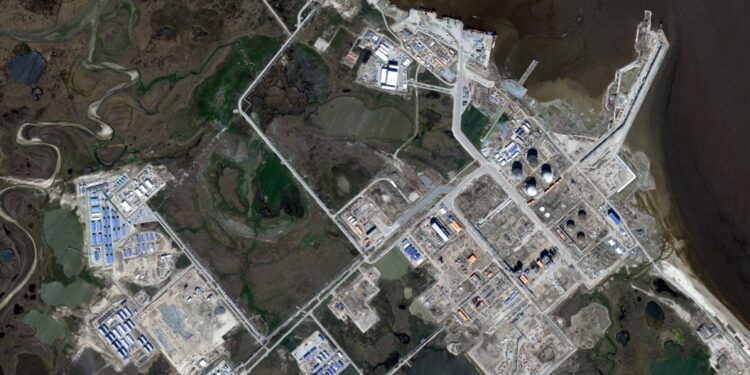In a contentious move that has sparked considerable debate, the U.S. government has announced plans to expand military bases in New Jersey and Indiana to accommodate the increased detention of immigrants. This decision, which comes amid ongoing discussions about immigration policy and border control, aims to address the pressing needs of a rising number of immigrant detainees. Critics argue that the militarization of immigration enforcement raises ethical concerns and questions about the treatment of vulnerable populations, while supporters maintain that these facilities will provide necessary support for the current immigration system. As the implications of this expansion unfold, communities and advocates across the nation are bracing for the social and political ramifications of this strategic shift in immigration management.
Military Facilities in New Jersey and Indiana to Serve as Detention Centers for Immigrants
The decision to repurpose military bases in New Jersey and Indiana as detention centers for immigrants has elicited a mix of responses from various stakeholders. Proponents argue that utilizing these facilities can streamline the processing and housing of individuals seeking asylum or immigration status. This plan is expected to ensure better security and control over detainee management, as military facilities are designed to accommodate and organize large groups efficiently. In addition, officials claim that the existing infrastructure, such as medical support and food services, can be adapted to meet the needs of detainees.
However, critics express concerns regarding the implications of this move. Many community leaders and human rights advocates argue that this approach could lead to the militarization of immigration enforcement, raising ethical questions about the treatment of detainees. The potential for increased tensions between local communities and federal authorities is also a significant concern. Key points in this ongoing debate include:
- Human rights implications: Critics fear that detaining immigrants in military settings could diminish their rights and lead to inhumane conditions.
- Community impact: Local residents express worries over the potential socio-economic effects and the perception of militarization in their neighborhoods.
- Logistical challenges: Transitioning military facilities into functional detention centers poses significant logistical hurdles and will require careful planning.
Impact of Expanding Military Bases on Local Communities and Immigration Policy
The decision to expand military bases in New Jersey and Indiana for the purpose of detaining immigrants has raised significant concerns about its repercussions on local communities. As these facilities begin to operate with a dual purpose, residents are grappling with the potential effects on community resources and social dynamics. Community leaders express worries that these expansions could strain local services, including healthcare, education, and law enforcement. Furthermore, there is an underlying fear that the increased presence of military personnel might contribute to an atmosphere of tension and distrust among residents, especially within immigrant populations who may feel targeted.
In addition to local community implications, the shift in immigration policy tied to these expansions has sparked a broader debate about the future of immigrant rights in the United States. Critics argue that such moves reflect a hardening stance on immigration, emphasizing enforcement over integration. Key points being discussed include:
- Military vs. Civilian Detention: Concerns regarding the appropriateness of using military bases as detention centers.
- Community Response: How grassroots organizations are mobilizing to provide support to affected families.
- Political Landscape: The implications for local and national politics regarding immigration reform.
As debates continue, stakeholders at various levels are examining the potential long-term impacts of this policy shift on the fabric of affected communities and the broader immigration landscape.
Recommendations for Supporting Affected Populations and Ensuring Human Rights Compliance
As the expansion of military bases in New Jersey and Indiana aims to accommodate a growing number of detained immigrants, it is crucial to ensure that the rights of these individuals are respected and upheld. Recommendations for effectively supporting affected populations include:
- Legal Assistance: Provide access to legal aid for detainees to navigate immigration processes and understand their rights.
- Health and Mental Health Services: Ensure that detainees receive comprehensive healthcare and mental health support, addressing any trauma experienced during their immigration journey.
- Cultural and Linguistic Support: Facilitate translation services and cultural training for staff to foster an environment of understanding and support.
- Regular Oversight: Implement independent oversight of detention facilities to monitor conditions and compliance with human rights standards.
- Community Coordination: Engage local community organizations to ensure ongoing support and resources for families impacted by detention.
Furthermore, fostering an environment of empathy and understanding amongst service providers and the general public is essential. To track the progress and challenges faced by immigrants in detention, a transparent reporting system should be established. This system could involve:
| Monitoring Aspect | Frequency | Responsible Entity |
|---|---|---|
| Health Assessments | Monthly | Health Services Board |
| Legal Rights Training | Quarterly | Non-Profit Organizations |
| Human Rights Audits | Bi-Annually | Independent Oversight Committees |
By integrating these recommendations and tracking systems, we can promote a more humane approach to immigration detention that prioritizes dignity, supports integration, and ensures compliance with established human rights principles.
Future Outlook
In conclusion, the recent decision to expand military bases in New Jersey and Indiana for the purpose of detaining immigrants marks a significant development in the ongoing national debate over immigration policy and border control. As the federal government seeks to address the challenges posed by increasing migrant arrivals, the implications of this expansion are complex and multifaceted. Advocates for immigrant rights express concerns over the treatment of detainees and the ethical ramifications of utilizing military facilities for civilian immigration purposes. Meanwhile, supporters argue that these facilities can provide necessary support during a time of heightened border pressures. As the situation evolves, it remains crucial for stakeholders at all levels to engage in a dialogue that addresses both security needs and humanitarian considerations. The coming months will likely see continued scrutiny and debate surrounding this contentious issue, as communities, lawmakers, and advocacy groups navigate the implications of these developments.
















